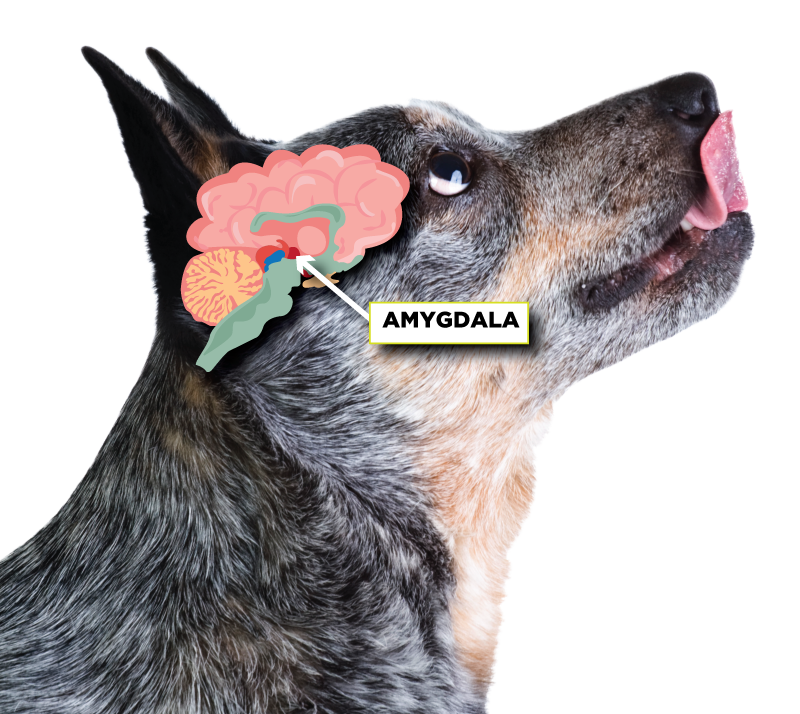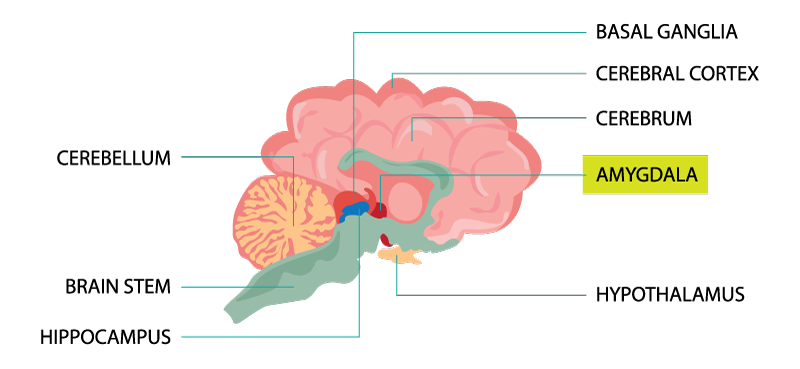Anxiety. Why is my pet anxious?
Anxiety is the anticipation of future danger that may be unknown, imagined, or real and can result in physiological responses similar to those associated with fear.

Unfortunately any behaviour that is driven by anxiety will only get worse with time and repeated exposure to its triggers, unless the underlying anxiety and emotional state caused by the triggers can be addressed. Anxiety is not based on rational thought.
Imagine how you feel when you are walking along a path and almost stand on a snake. You immediately react as your Amygdala (the emotional and primitive part of your brain) activates. You have jumped a good distance back, your heart is pounding and you haven’t even caught your breath yet … then you realise, it is just a stick!
This is the moment your Cortex (the rational, conscious and thinking part of your brain) takes back over, allowing your breath to return to normal and you can go on walking.
This is an example of an Amygdala hijack, when it overrides the rational thinking part of your brain. All mammals, birds and reptiles have an Amygdala that is programmed to help survival, the activation of the amygdala leads to life preserving behaviours generally one of Freeze, Fight or Flight. To keep things fairly simple, in an anxious brain, the amygdala is often more overly active than in a non-anxious brain, and the balance of neurochemicals controlling the brain’s activity differ from those in a calm, non-anxious individual. This cannot be a pleasant way to perceive the world!
CEREBRAL CORTEX Awareness, thought and memory
HYPOTHALAMUS Metabolic processes and appetite
AMYGDALA Regulates emotions
BASAL GANGLIA Motor skills and learning
HIPPOCAMPUS Memory and recall
BRAIN STEM Pain sensation, heart rate, blood pressure, reflex and muscle tone

Your vet will be able to assess the physical health of your pet and detect any abnormalities that may be causing pain or discomfort and contributing to your pet’s behaviour.
After ruling out physical problems and collecting a history, your vet may be able to determine if your pet’s behaviour is something that may benefit from positive reinforcement-based training or something that needs a further work up to assess your pet’s mental health.
Depending on the severity of the problem your vet may give you some advice for management of the problem, ask you to come back for a longer consultation or refer you for a behavioural consultation.




Recent Comments